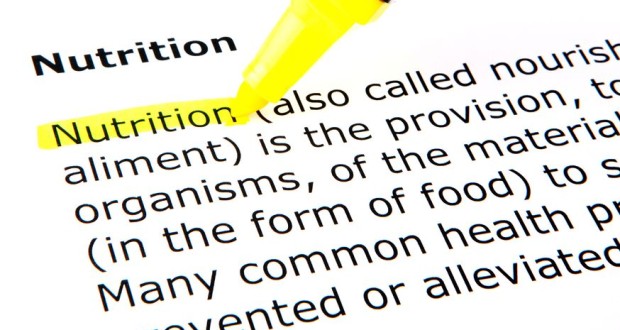It’s no secret that aging presents the body with various challenges, ranging from declining mental sharpness to thickening waistlines to increasingly stubborn aches and pains. As if seniors didn’t have enough to be concerned about, age also makes it more challenging for the body to absorb key nutrients from foods. Because of this, it is important for older adults to emphasize certain vitamins and minerals in their diet. Below are some nutrients that help keep the body healthy well into old age.
Calcium – Calcium is synonymous with bone health, and for good reason; the body’s bones need this mineral to remain durable and strong. Unfortunately, starting in early adulthood, the amount of calcium in the bones begins to steadily decline. This trend accelerates after the age of 50. Consequentially, many seniors find themselves at risk of developing osteoporosis, a condition that renders bones weak and prone to fracture.
Seniors, particularly women, are encouraged to protect their bones by consuming an appropriate amount of calcium. According to the National Institutes of Health (NIH), men aged 51 to 70 need 1,000 milligrams of calcium daily, whereas women in the same bracket need 1,200 mg of this nutrient. The NIH also recommends that all seniors over the age of 70 consume 1200 mg of calcium per day. Good calcium sources include skim milk, yogurt, kale, broccoli and salmon.
Magnesium – Did you know that the body uses magnesium for over 300 chemical reactions? This mineral allows all of the body’s organs (especially the heart and kidneys) to operate smoothly. In addition, magnesium also works to control muscle contractions, , bolster bone strength and reinforce the immune system. The NIH recommends that men aged 51 and older get 420 mg of magnesium each day; women in this age group need 320 mg daily. Items that are rich in magnesium include almonds, spinach, peanuts, black beans and cashews.
Fiber – An appropriate intake of fiber is essential for a healthy digestive system. Fiber helps to prevent constipation by pushing waste through the digestive tract in a timely manner. Men over the age of fifty need 30 daily grams of fiber, whereas women should aim for 21. Your best bets for finding fiber at the supermarket include raspberries, black beans, green peas, baked beans, split peas and lentils.
Vitamin B12 – Believe it or not, vitamin B12 is used by every single cell in the body. It is especially important to the cells located in the spinal cord and brain. Regardless of gender, the NIH advises all adults to consume 2.4 micrograms (mcg) of this nutrient per day. Clams, mussels, beef and lamb are loaded with vitamin B12, whereas sizable amounts of vitamin can be found in many types of fish (such as trout, salmon and tuna).
Omega 3 Fatty Acids – You’ve probably heard many good things about omega 3 fatty acids over the last several years. Studies have found that an appropriate intake of this nutrient supports heart health, while simultaneously keeping the body’s triglyceride levels in check
Shoppers have plenty of options when looking for this nutrient. As shown by the following list, many popular types of seafood are absolutely brimming with this nutrient (all of these amounts assume a portion size of 4 oz).
| Anchovies | 2,300-2,400 mg of Omega 3 |
| Salmon | 1,200-2,400 mg |
| Bluefin Tuna | 1,700 mg |
| Sardines | 1,100-1,600 mg |
| Trout | 1,000-1,100 mg |
| Crab | 200-550 mg |
| Cod | 200 mg |
| Scallops | 200 mg |
| Lobsters | 200 mg |
| Shrimp | 100 mg |
For those not partial to seafood, omega 3’s can also be found in kidney beans, pinto beans, walnuts, spinach, broccoli and cauliflower.
Potassium – As with vitamin B12, all cells in the body utilize potassium. Potassium’s many functions include managing the amount of water in the body, controlling the blood’s pH (potential hydrogen) level, regulating blood pressure and enabling muscles to contract.
The recommended daily intake of potassium for adults is 4700 milligrams. Very few Americans, however, consume this much potassium on a daily basis. People looking to up their potassium intake could start by picking up some sweet potatoes, orange juice, grapefruit juice and raisins. Other items that feature this nutrient include lima beans, white beans, prunes, carrot juice, halibut and tuna.
 Natural Knowledge 24/7 Educate yourself with nutrition, health and fitness knowledge.
Natural Knowledge 24/7 Educate yourself with nutrition, health and fitness knowledge.






